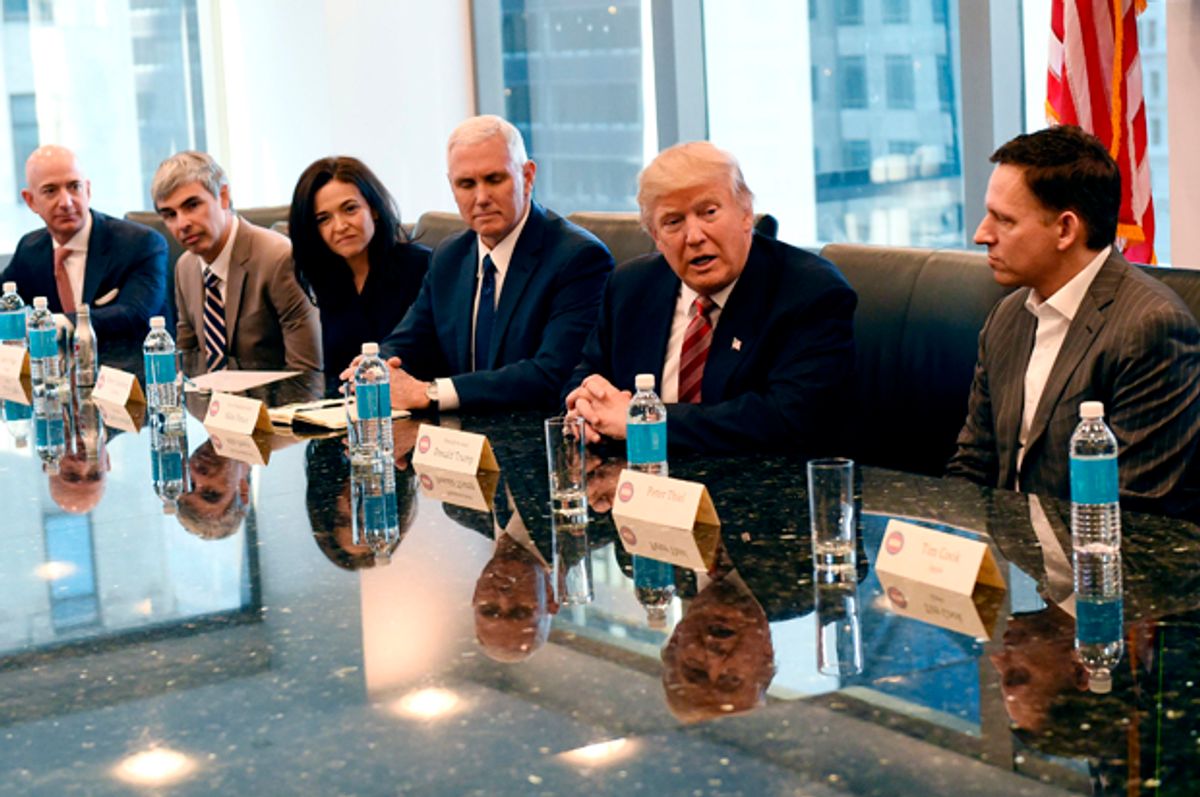President Donald Trump is picking up his marbles and taking them home.
After five members of a manufacturing advisory council resigned this week over the president’s reaction to a hate rally that turned deadly in Charlottesville, Trump decided he didn't want to play with them anymore.
In a surprise message announced on his Twitter account, the president abruptly ended an initiative to garner advice from the heads of well-known companies through two groups, one to discuss how to create factory jobs and the other to tackle economic policies.
http://twitter.com/realDonaldTrump/status/897869174323728385
The timing of the decision raised questions about whether Trump decided to end his initiatives before facing further embarrassment of executives reacting to his policies and statements by distancing themselves from the White House.
The president only met once publicly with members of the Strategic and Policy Forum, back in February. But if you missed it, don’t worry. Little has come from either of the groups since they were formed, and no formal policy announcement has been made attributable to them.
Another question: Who actually decided to disband the larger Policy Forum? CNBC reported Wednesday that the members of the board itself decided to disband, citing the president’s unpredictable behavior. Less than two hours before Trump’s tweet announcing he was disbanding the two groups, he expressed frustration at the CEOs who dropped, calling them “grandstanders” that force him to seek replacements.
http://twitter.com/realDonaldTrump/status/897478270442143744
On Monday, the president lashed out at Kenneth Frazier, the CEO of drugmaker Merck, for resigning from the council after the president blamed “many sides” for the violence that erupted Saturday. Trump attacked Frazier, who is African-American, for ripping off Americans on drug prices.
http://twitter.com/realDonaldTrump/status/897079051277537280
Earlier this year, Disney CEO Bob Iger and Elon Musk, the heads of Tesla and SpaceX, respectively, departed in protest of the president’s move to pull out of the global Paris Agreement on climate change. In February, Uber’s then-CEO Travis Kalanick backed out after Trump initiated a ban on travelers from eight Muslim-majority countries.
The manufacturing council was announced by the White House in January as a way for the president to meet with “some of the world’s most successful and creative business leaders to share their experiences and gain their insights.” The group was created to give advice to the president on how to create more factory jobs, but so far little had come from group beyond the usual private-sector and Republican drumbeat of tax cuts and deregulation.
The Strategic Policy Forum, headed by billionaire investor Stephen A. Schwarzman, was created in December to guide Trump in his overall strategy of running the government like a private enterprise, something the president has said is the way to create jobs and drive economic growth.
These two groups offered CEOs and private investors special access to lobby directly into the president’s ear. But some members realized that the price in reputation for that access was too high.



Shares